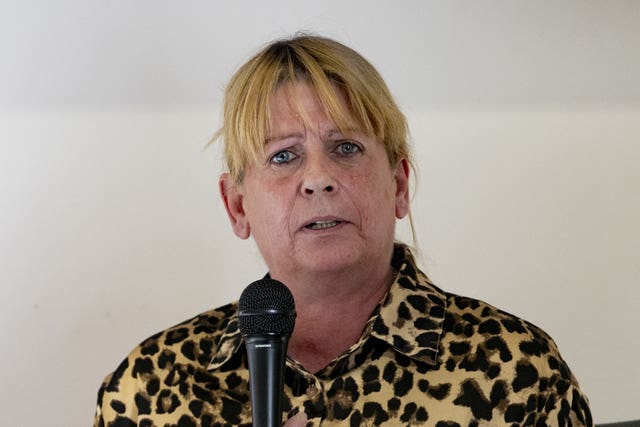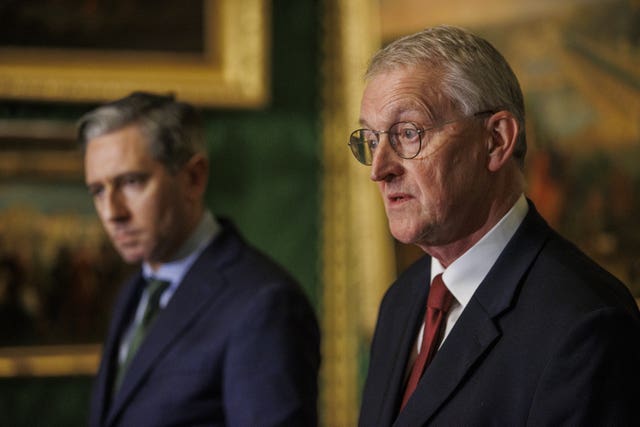The Government has brought a challenge to the UK’s highest court on aspects of the last Conservative government’s contentious Legacy Act.
The Supreme Court will later hear a Government appeal against a judicial ruling that found aspects of contentious legacy legislation dealing with the Northern Ireland Troubles to be unlawful.
The challenge to the UK’s highest court has been brought by Northern Ireland Secretary Hilary Benn, who said the case would examine “constitutional questions” related to the Legacy Act, which was introduced by the last Conservative government.
While the Labour government has already pledged to significantly reform the legacy legislation brought in by the Tories – and is set to scrap many of its most controversial provisions – Mr Benn is pressing ahead with the Supreme Court appeal, as he contends it will focus on issues that have wider implications beyond the Legacy Act, including the interpretation of the post-Brexit Windsor Framework.

The three-day hearing will centre on a judgment handed down by the Court of Appeal in Belfast last year in a case involving the Government and several bereaved victims.
The three appeal court judges, led by Northern Ireland’s Lady Chief Justice Dame Siobhan Keegan, found the Act breached human rights laws and rights provisions within the Windsor Framework.
They ruled that a Government veto power over what sensitive material can be disclosed to bereaved families by the Act’s investigative and truth recovery body – the Independent Commission for Reconciliation and Information Recovery (ICRIR) – was unlawful.
The judges also found the commission does not provide victims and their next of kin adequate means to participate in its processes.
The Legacy Act offered conditional immunity to the perpetrators of some Troubles crimes in exchange for their cooperation with the ICRIR.
The Court of Appeal ruled that the Act undermined the rights of victims, specifically in respect of a commitment within the Windsor Framework to protect the human rights entitlements provided for in Northern Ireland’s historic Good Friday peace agreement.
Article 2 (1) of the framework states that the Government must ensure that various rights entitlements in Northern Ireland, which were enshrined following the 1998 peace deal, cannot be diminished as a result of the UK leaving the EU.
The Court of Appeal ruled that the Legacy Act did bring about a “diminution” of rights for victims, suggesting that Parliament would not have been able to pass such a law if the UK had remained within the EU.

While the Government has already announced a series of reforms designed to make the Act compliant with the European Convention on Human Rights (ECHR), including the axing of the immunity provision, Mr Benn is hoping the Supreme Court will offer clarity on how the Windsor Framework should be interpreted in respect of rights issues in other domestic legislation in Northern Ireland going forward.
The Supreme Court hearing will be before Lords Reed, Hodge, Lloyd-Jones, Hamblen and Stephens.
One of the victims involved in the case is Martina Dillon, whose husband Seamus was shot dead by loyalists in Dungannon in 1997.
Ahead of the Supreme Court case beginning, she said: “The Government should not be fighting bereaved families in the courts.
“We’ve already endured years of delay and disappointment. It’s time the Government stopped defending this discredited law and started helping victims get the truth and accountability we’ve been denied for too long.
“Legislation to repeal and replace the Legacy Act must be urgently introduced to protect our rights.”
Amnesty International is also involved in the case.
The organisation’s deputy director in Northern Ireland, Grainne Teggart, said it was “deeply disappointing” that the Government had brought the case to the Supreme Court.
“The Court of Appeal judgment should have drawn a clear line under this discredited Legacy Act,” she said.
“Instead, the Government is dragging victims back to court, prolonging their suffering and defending the indefensible.”
The Conservative government introduced the Legacy Act in the face of opposition from all the main political parties at Stormont and the Irish government. The legislation prompted ministers in Dublin to initiate an interstate legal case against the UK in the European Court of Human Rights.

The Labour government has taken a different approach to legacy and worked in conjunction with the Irish government to develop a new framework on legacy, which was unveiled by Mr Benn and Ireland’s deputy premier Simon Harris last month.
The new blueprint has raised expectations that the Irish government is moving closer to dropping its interstate legal case.
Measures in the framework include:
– The Legacy Act placed a bar on Troubles-related civil cases in UK courts and halted inquests on conflict-linked deaths. Both those moves have been reversed.
– Significant restructuring of the ICRIR. It will be renamed the Legacy Commission.
– A separate truth recovery mechanism will be created called the Independent Commission on Information Retrieval.
– Reform of disclosure processes to address the concerns over the veto power held by the Northern Ireland Secretary of State on what sensitive information can be accessed by legacy bodies.

